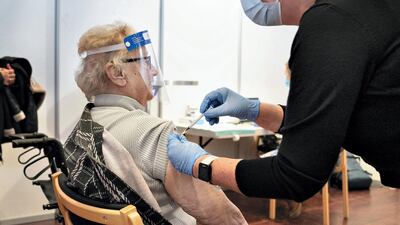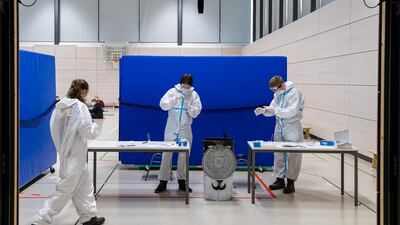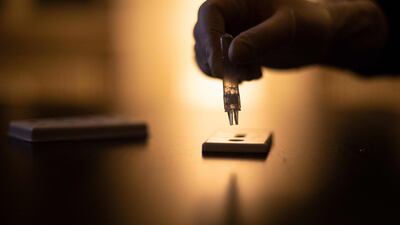The majority of people who catch Covid-19 are protected from reinfection for at least six months.
Researchers found elderly people were more likely to be infected again, reinforcing the need for vaccine prioritisation.
A new study analysing infection rates in Denmark at the end of last year found people under 65 who previously had coronavirus had about 80 per cent protection against reinfection.
Natural protection against Covid-19 declined to about 47 per cent in those 65 and older. The results of the peer-reviewed study were published in The Lancet medical journal.
Researchers said there was no evidence that protection against coronavirus waned over six months.
Dr Steen Ethelberg, from the Statens Serum Institute in Denmark, said the study showed why the elderly should be prioritised for vaccines and exercise social distancing.
“Since older people are also more likely to experience severe disease symptoms, and sadly die, our findings make clear how important it is to implement policies to protect the elderly during the pandemic,” he said.
“Given what is at stake, the results emphasise how important it is that people adhere to measures implemented to keep themselves and others safe, even if they have already had Covid-19.”
The study was made possible by Denmark’s asymptomatic testing regime, with more than two thirds of the country’s four million people tested for Covid-19 last year.
Of those testing positive between March and May, only 0.65 per cent tested positive again during the second wave from September to December. The rate of infection was five times higher at 5.5 per cent among those who tested negative during the first wave.
Dr Daniela Michlmayr, one of the study’s authors, said more work was needed to determine if natural protection lasted longer than six months.
“The closely related coronaviruses Sars and Mers have both been shown to confer immune protection against reinfection lasting up to three years, but ongoing analysis of Covid-19 is needed to understand its long-term effects on patients’ chances of becoming infected again,” she said.
The study did not analyse the potential effect of new variants, such as those identified in England, Brazil and South Africa.
Prof Rosemary J Boyton from Imperial College London said the study showed vaccines remained the “enduring solution” to the pandemic.
“The hope of protective immunity through natural infections might not be within our reach,” she said.













